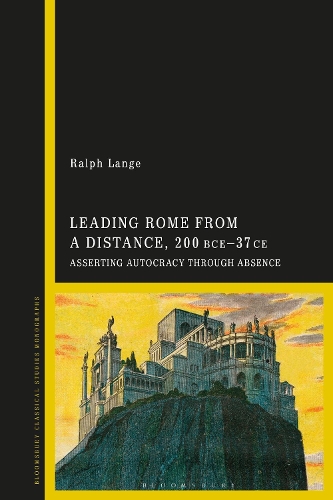
Leading Rome from a Distance: Asserting Autocracy through Absence 300 BCE-37 CE
(Hardback)
Publishing Details
Leading Rome from a Distance: Asserting Autocracy through Absence 300 BCE-37 CE
By (Author) Dr Ralph Lange
Bloomsbury Publishing PLC
Bloomsbury Academic
14th November 2024
United Kingdom
Classifications
Professional and Scholarly
Non Fiction
Ancient Greek and Roman literature
Political leaders and leadership
Historical research: source documents
Communication studies
937.02
Physical Properties
Hardback
248
Width 162mm, Height 238mm, Spine 20mm
520g
Description
Roman political leaders used distance from Rome as a key political tool to assert pre-eminence. Through the case studies of Caesars hegemony, Augustuss autocracy, and Tiberiuss reign, this book examines how these figures experiences and manipulations of absence established a multipolar focus of political life centred less on the city of Rome, and more on the idea of a single leader. The Roman expansion over Italy and the Mediterranean put the political system under considerable stress, and eventually resulted in a dispersal of leadership and a decentralization of power. Absent generals rivalled their peers in Rome for influence and threatened to surpass them from the provinces. Roman leaders, from Sulla to Tiberius, used absence as a mechanism to act autonomously, but it came at the cost of losing influence and control at the centre. In order to hold influence while being split off from the decision-making powers of the geographical nucleus that was Rome, communication channels to mitigate necessary absences were developed during this period, such as travel, intermediate meetings, letters (propaganda writings) and a complex network of mediators, ultimately forming the circle from which the imperial court emerged. Absent leadership, as it developed throughout the Late Republic, a hitherto neglected issue, eventually became a valuable asset in the institutionalising process of the autocracy of Caesar, Augustus, and Tiberius.
Author Bio
Ralph Lange is an independent scholar, Luxembourg. He works at the Documentation Centre of the Luxembourg fortress of the National Museum of History and Art, Luxembourg.
